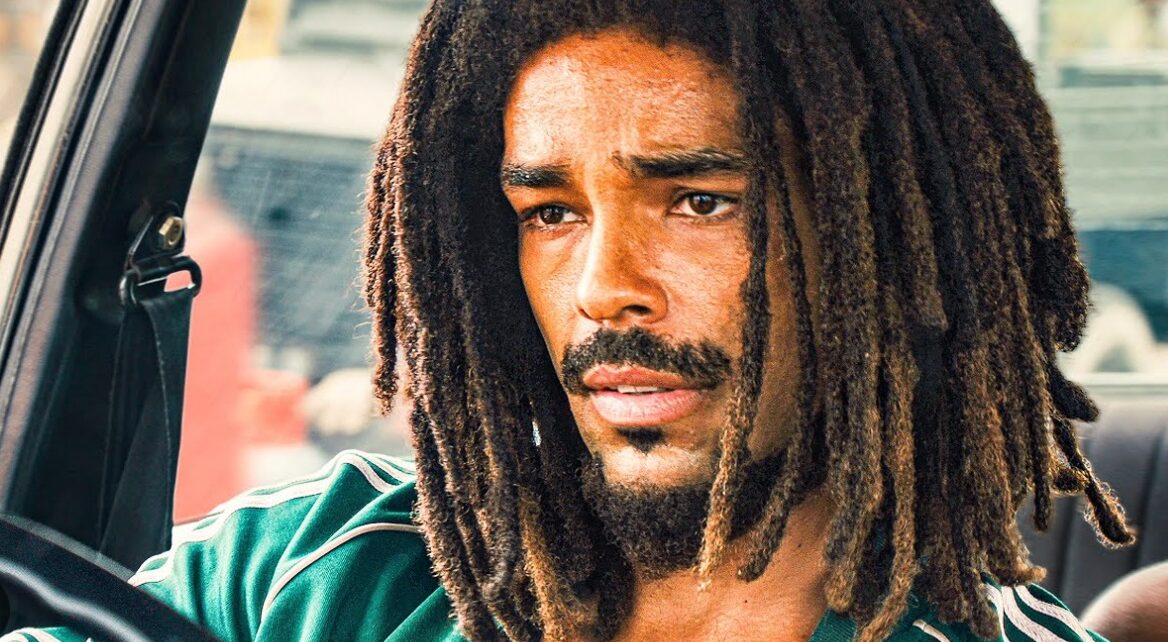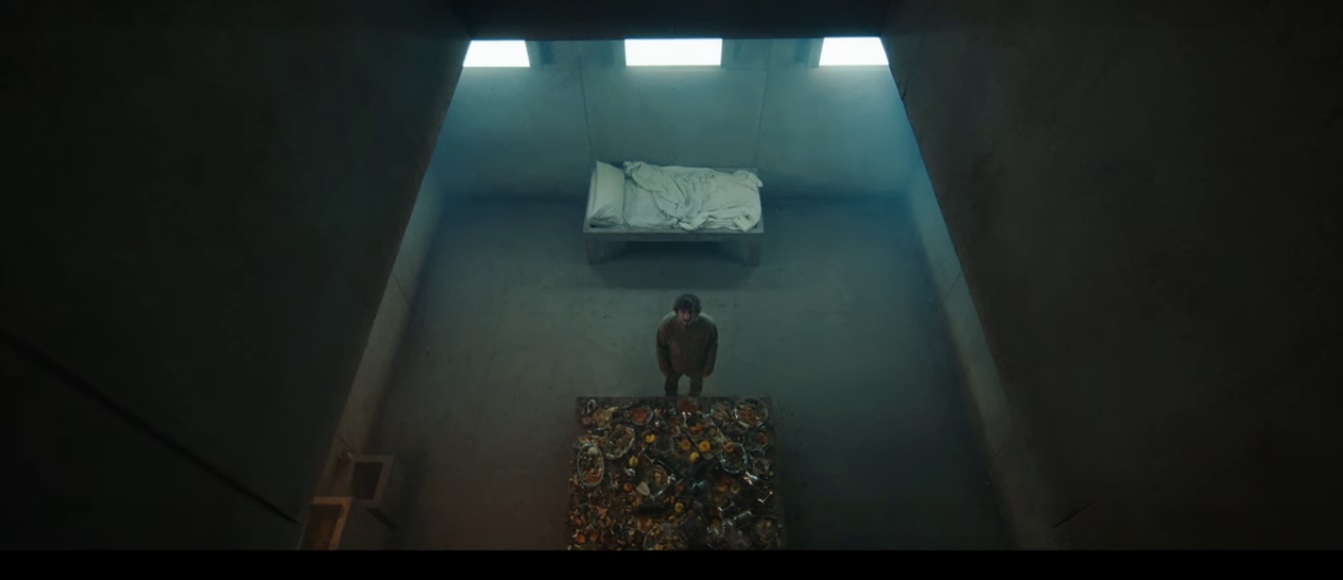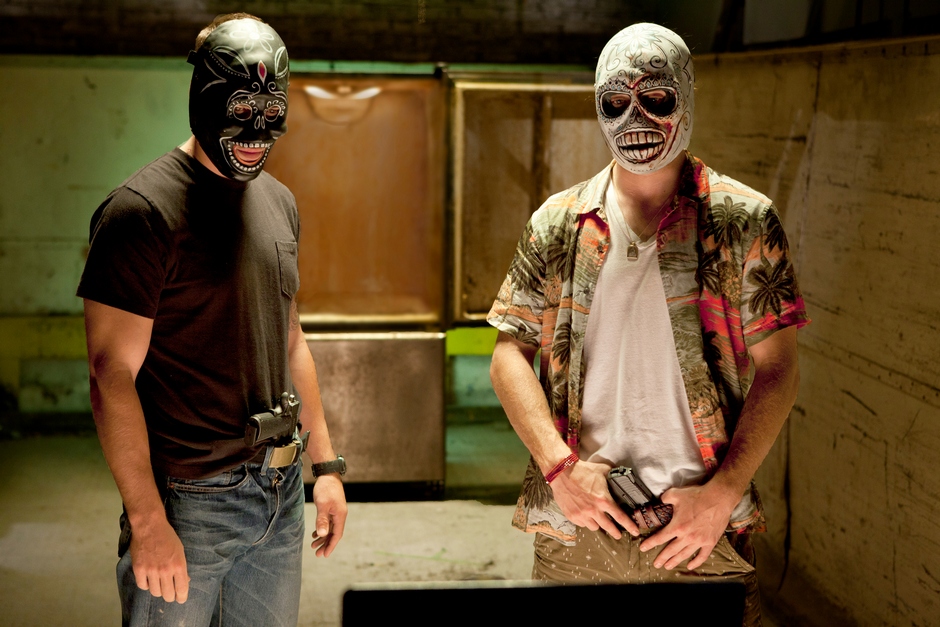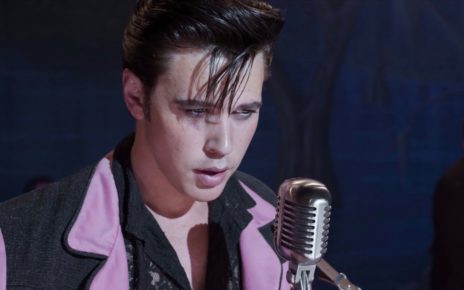How evil do you have to be to shoot at Bob Marley? Just try and picture a human throughout history who gave more and asked less. There are not many. I’d put Bob above Mother Teresa on the ultimate list of “Net Good to Humanity.” The man brought peace, mellow, humility, and musical genius to the world. Whatever I accomplish in fifty lifetimes can’t hope to rise to the good Bob raised. If you ever get to the point where you say, “I have to shoot Bob Marley and his family,” well, you have to rethink your life. A lot.
Unlike most musical biopics, Bob Marley: One Love skipped straight to the part where he’s already a star. Ok, I guess that’s a strategy … but when do we get that scene where a struggling artist hits the big time? That’s my favorite part of the musician story. Oh, that doesn’t come until much later … and the impact is minimal? Umm, that kinda bites. Yeah, I’m gonna cry about it. Call me a “Wailer.”
As the film opens, Bob Marley (Kingsley Ben-Adir as adult, Quan-Dajai Henriques as teen), the already established Jamaican superstar, is taking gunfire for daring to play soccer in a public park. The gunfire is a response to Bob’s announcement for a peace concert hoping to bring together Jamaica’s two warring factions.
Director Reinaldo Marcus Green set two goals for this film. The first was to demonstrate the musical genius that is Bob Marley. The second was to put Bob Marley’s popularity into political context so as to explain his role in the Jamaican political peace process. Both of these goals were half-assed. In 1976, a gunman broke into Marley’s home and shot several people, including Bob; I’m still waiting for the who? and the why? of this event. One Love suggested this was a political hit because Bob wanted peace. OK, so I’m guessing the why pertained to a faction that didn’t want peace. The who is still a mystery, and since it is still a mystery, so is the why. Bottom line: the film was interested in showing us the event without investigating anything around it, as if the violence inspired by the Marley proclamation occurred in a vacuum. Bob Marley sent his family to the United States … and then kept on living exactly the same life he did before. No extra security. No paranoia. He even meets the warlords later in the film, by himself, unannounced.
This entire biopic is curious from the standpoint that Bob Marley has long accepted his duty as  Jamaican icon. It is noble that such is his focus. These things are (generally) secondary concerns to other icons. Now let’s look at how that focus treats us, the viewing audience: Bob’s rise an artist from abandoned waif to reggae legend is backhanded at best and his personal crises as husband, father, adulterer, jealous lover, and relative human are all stuffed awkwardly in a ten-minute segment in between his normal chain ganga-smoking and his post-cancer chain ganga-smoking.
Jamaican icon. It is noble that such is his focus. These things are (generally) secondary concerns to other icons. Now let’s look at how that focus treats us, the viewing audience: Bob’s rise an artist from abandoned waif to reggae legend is backhanded at best and his personal crises as husband, father, adulterer, jealous lover, and relative human are all stuffed awkwardly in a ten-minute segment in between his normal chain ganga-smoking and his post-cancer chain ganga-smoking.
The film is also very religious. Bob was big into Jah and Rastafarianism. Hey, whatever raises your corrugated roof. None of that goes far with me, of course. Movies that turn into preaching sessions aren’t movies any longer, they’re sermons. And overall, given Bob’s reluctance to explore his skin cancer diagnosis, I feel like Rastafarians have their own version of universal health care in which everything is solved by medical marijuana.
I love Bob Marley. What’s not to One Love? I didn’t love this film. It should have either told us who Bob Marley was or why he was important, and I feel like it assumed both without accomplishing either.
There once lived a musician named Bob
Who made love his round-the-clock job
Smoking reefer by day
He’d loaf, jam, and pray
And at night, he would entertain a mob
Rated PG-13, 107 Minutes
Director: Reinaldo Marcus Green
Writer: Terence Winter, Frank E. Flowers, Zach Baylin
Genre: Good subject, meh payoff
Type of being most likely to enjoy this film: Ziggy Marley
Type of being least likely to enjoy this film: “I genuinely want to know more about Bob Marley”



